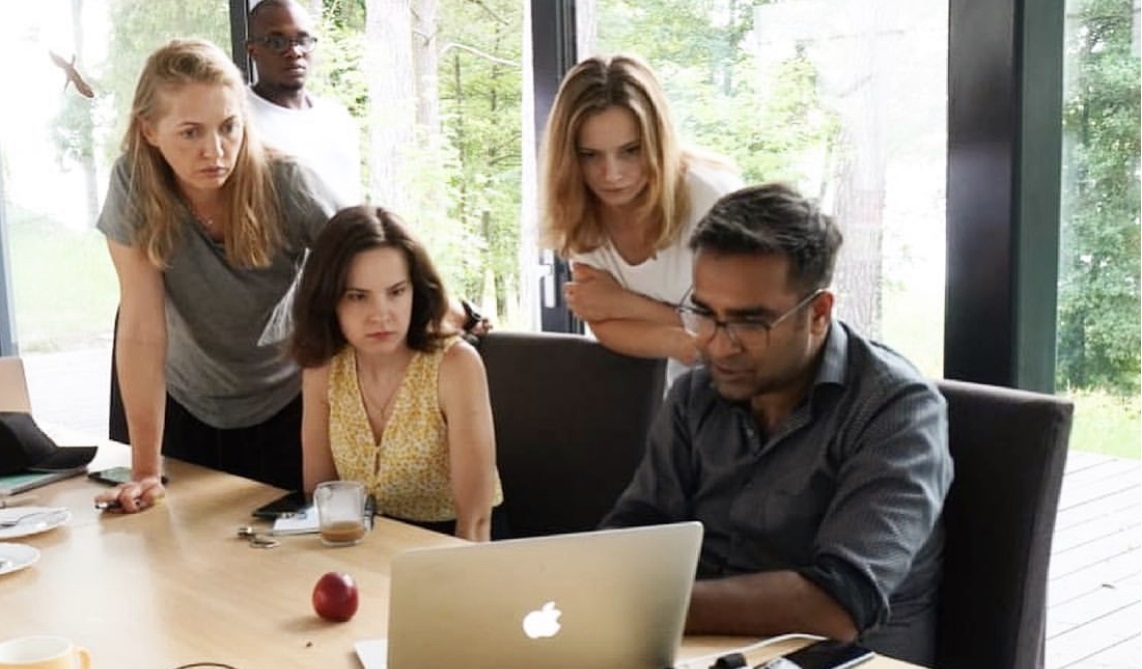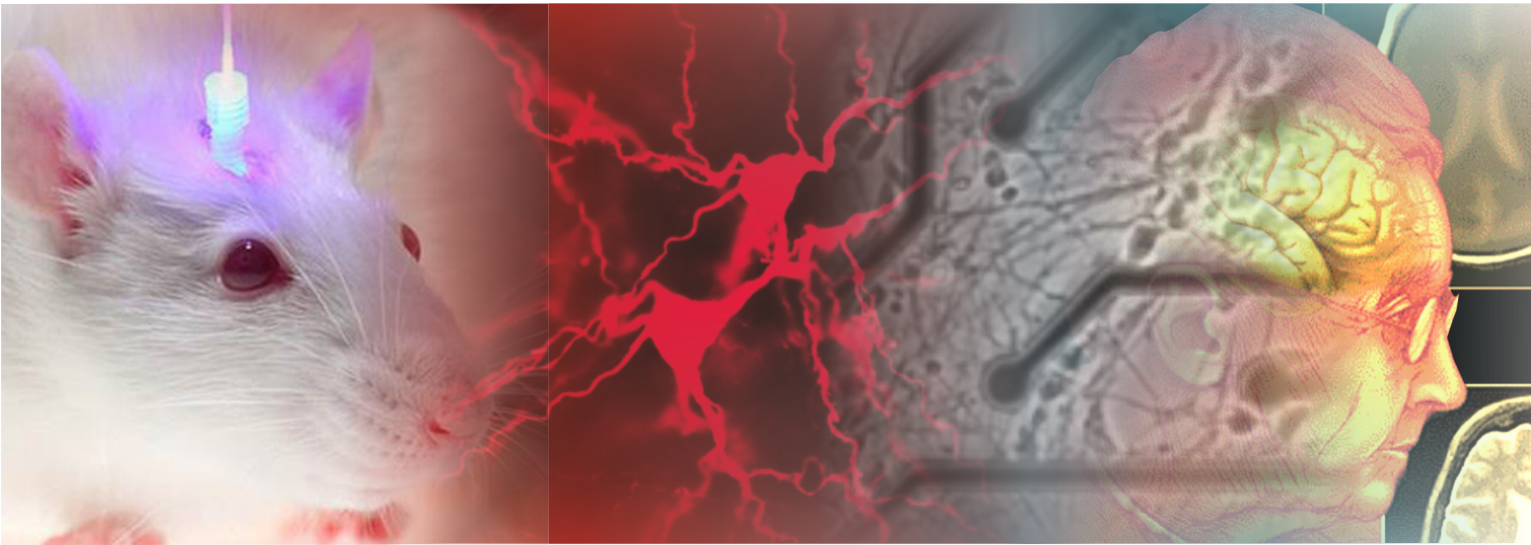



4 sesje warsztatów prezentacji naukowej w Instytucie Nenckiego
Serdecznie zapraszamy do udziału w 4 sesjach poświęconych umiejętnościom prezentacji naukowej, które odbędą się w dniach 7-8 października 2021 r. w Instytucie Nenckiego.
W każdej sesji:
- studenci będą mieli szansę zaprezentować swoją pracę naukową oraz otrzymają wsparcie i mentoring o tym, co zrobić, by prezentacje były bardziej przejrzyste, dydaktyczne, wciagające i zachęcające.
- Studenci będą mogli przedstawić 3-minutową prezentację ustną lub na slajdach, po której otrzymają 5 minutową informację zwrotną, lub 12-minutową prezentację na slajdach, po której otrzymają 8-minutową informację zwrotną.
W sesjach weźmie udział pięcioro znakomitych mentorów:
Czwartek, 07 października, 09:30-12:30 Mentorzy: Rafał Czajkowski i Ali Jawaid
Czwartek, 7 października, 14:00-17:00 Mentorzy: Jan Kamiński i Ali Jawaid
Piątek, 08 października 09:30-12:30 Mentorzy: Mark Hunt i Ali Jawaid
Piątek, 08 października 14:00-17:00 Mentorzy: Anna Malik i Ali Jawaid
Zapisy za pomocą linku: https://tinyurl.com/4z8k2h8e.
Rejestracja trwa do poniedziałku 4 października, do godz. 17:00.
Jest jeszcze 10 wolnych miejsc (“kto pierwszy ten lepszy”)! – tylko w długim formacie – 12 minut.
Prosimy o upewnienie się, że wybraliście Państwo 1. i 2. preferowaną opcję w formularzu google.
Można wziąć udział tylko w jednej sesji (aktywne uczestnictwo).
Za uczestnictwo w sesjach można otrzymać 0,5 ECTS.
Sesje są dostępne dla doktorantów Nenckiego.
Do zobaczenia!

Warsztaty z komunikacji naukowej w Instytucie Nenckiego
Serdecznie zapraszamy do udziału w warsztatach z komunikacji naukowej prowadzonych przez dr Aleksandrę Pękowską oraz dr Alicję Puścian.
Podczas warsztatów będziecie Państwo mogli poznać tajniki wygłaszania wykładu naukowego i przygotować się do zbliżającej się tegorocznej konferencji doktorantów Nenckiego.
Warsztaty odbędą się 4 października 2021 r. (poniedziałek) w godzinach 10:15-16:00.
W warsztatach wezmą udział goście specjalni z King’s College London, Instytutu Nenckiego i Yale.
Za udział w warsztatach zostanie przyznane 0.5 ECTS.
Program
When: Oct 4 th , 2021 (Monday), 10:15-16:00
Where: Neurobiology Center (CN) lecture hall in the main building + Zoom Webinar platform (for
those who are unable to attend in person)
Lineup
Chairs: Aleksandra Pękowska & Alicja Puścian
10:15 – 10:30 – Introduction by Aleksandra Pękowska
Dioscuri Centre for Chromatin Biology and Epigenomics, Nencki Institute of Experimental
Biology, Polish Academy of Sciences
10:30 – 11:30 – “What holds us back: key issues with giving scientific talks”
Discussion panel with Laura Andreae
King’s Collage London & FENS-Kavli Network of Excellence
11:30 – 11:45 SHORT BREAK
11:45 – 12:45 – “Unique presentation formats” (virtual presentation, flash talks/pitch talks, scientific
communications with broader public e.g. TEDx)
Lecture by Ali Jawaid
Nencki-EMBL Partnership for Neural Plasticity and Brain Disorders – BRAINCITY
12:45 – 14:00 LUNCH BREAK – Pizza Time
14:00 – 15:00 “Facing the dragon of public speaking”
Interactive session with Alicja Puścian
Nencki-EMBL Partnership for Neural Plasticity and Brain Disorders – BRAINCITY
15:00 – 15:50 – “How (not) to give a talk”
Lecture by Jessica Cardin
Yale University
15:50 – 16:00 – Closing remarks



Wykład prof. Dirka Schuberta „ Current approaches in neurological disorder research: from animal models to human brain on the chip – ZMIANA TERMINU na kwiecień 2022!
Serdecznie zapraszamy do udziału w wykładzie “Current approaches in neurological disorder research: from animal models to human brain on the chip”, który odbędzie się w dniach 04 – 08 kwietnia 2022 r. w Instytucie Nenckiego (sala na 1 piętrze).
Wykład poprowadzi prof. Dirk Schubert z Radboud University Medical Centre, Dept. of Cognitive Neuroscience, Nijmegen, The Netherlands
Liczba miejsc: 30-50
Język wykładowy: Angielski
Dla kogo: Studenci studiów magisterskich i doktoranckich/postdocs z różnych dziedzin (biologia, chemia, fizyka, medycyna)
Stypendium: FENS i IBRO-PERC pragną zachęcić i promować międzynarodowe doświadczenie studentów, dlatego zapewniają 4 stypendia w wysokości 750 EUR dla studentów studiów magisterskich i/lub doktoranckich zainteresowanych uczestnictwem w tym kursie na pokrycie kosztów podróży i zakwaterowania (studenci, którzy obecnie mieszkają lub studiują w Polsce nie kwalifikują się do otrzymania stypendium FENS i IBRO-PERC).
Zapisy na wykład: phdoffice@warsaw4phd.eu
Zapisy trwają do 05 listopada 2021 r.
Za udział w wykładach przewidziane są 2 ECTS w ramach kursu “Advanced methods of biology”
Program wykładów:
1. Ex vivo techniques for testing neurological networks
What techniques are currently golden standard in investigating neuronal network structure and function ex vivo? In the lecture the students will get an overview about how to assess single neuron structure and function up to neuronal population activity
2. Inhibitory/excitatory networks
Current research implies that distorted balance between excitation and inhibition is playing a key role in most neurodevelopmental and neurodegenerative disorders. After 1st introducing the wealth of different classes of excitatory and inhibitory neurons and their specific network integration, during a workgroup the students will work on simple model circuits in order to understand synaptic integration in basic excitatory/inhibitory networks.
3. Animal models for neurodevelopmental disorders
Today science can design animal models for many specific mutations, disorders and research readouts. During this lecture the students will get an overview of a selection of state-of-the-art genetic approaches that allow disease as well as cell type specific neuronal manipulation in translational research.
4. Cellular correlates of mind and memory in vivo
New approaches allow the monitoring and replaying memory in living animals on cellular level. In this interactive lecture the students will learn and discuss about how to use such animal models in fundamental research on memory and in understanding neurological disorders.
5. Human brain on the chip
How to investigate complex mental disorders and treatment strategies in animal models if the genetic etiology is often hardly comparable with the individual patient. Human derived pluripotent stem cells and the so called “human brain on a chip” approaches allow new ways for investigating gene-cellular phenotype correlation and provide a testing platform for patient specific drug testing. During the interactive lecture and using example disorders the student will learn the pros and cons about 2-dimensional neuronal cultures of human iNeurons and brain organoids.
6: Student presentations (up to 32 students) or examination (>32 students)
Dependent on the number of students enrolled in the course, the study aims will be tested either (a) by means of a 2hr exam on the last day (open questions) or (b) by students’ presentations and graphical abstracts.
For the presentations: groups of 4 students will chose one recent paper (list of relevant articles will be provided) which they will present during a 15 min Powerpoint presentation. All 4 students need to present and the presentation will be graded. Every group will also produce a short graphical abstract of their paper, which will produce a grade that will be combined with the grade for the presentation.
Szczegółowy plan wykładów dostępny tutaj

Sprawozdanie semestralne – doktoranci – semestr letni
Uwaga! Przypominamy o konieczności złożenia sprawozdania z realizacji programu kształcenia z semestru letniego w nieprzekraczalnym terminie do dnia 07 września 2021 r.


